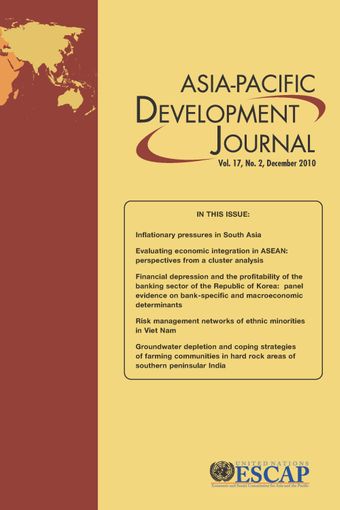-
Risk managmement networks of ethnic minorities in Viet Nam
- Source: Asia-Pacific Development Journal, Volume 17, Issue 2, Sep 2011, p. 93 - 118
-
- 06 Sep 2011
Abstract
The utilization of informal social networks is an important risk management strategy of vulnerable households in South-East Asia. To gain insight on this issue, a social network analysis (SNA) was implemented to assess risk management networks of ethnic minority farm households in the northern uplands of Viet Nam. The results from the analysis suggest that kinship relations and the level of wealth play an essential role in enabling basic network services to function. This paper also points out that effective networks require investments to fulfil the requested mutual obligations and that subsequently, social networks among poor farmers are relatively limited. The findings of the analysis show, not surprisingly, that networks cannot completely buffer severe shocks. Consequently, policy measures to reduce the costs of investing in social capital of poor farmers as well as improved access to appropriate social security systems are essential. These findings are applicable to other upland areas of South-East Asia.
© United Nations





